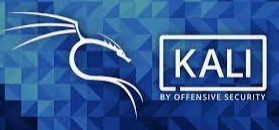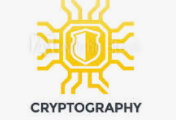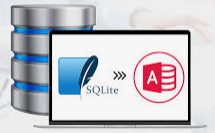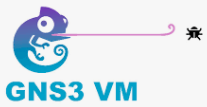Get ahead of the pack in a groundbreaking industry.
Organisations are under pressure to adapt digitally and networking professionals are in higher demand than ever.
Our Graduate Diploma of Networking (GDNet) was developed in collaboration with industry. We make sure our course content remains highly relevant to a rapidly evolving industry. So, you can be sure to graduate with the latest knowledge and skills at your fingertips.
DURATION
2 Trimesters Full-Time orEquivalent Part-Time
INTAKES
March,July,
November
LOCATION
Online Sydney, MelbourneAQF LEVEL
Level 8| Duration 2 Trimesters Full-Time or Equivalent Part-Time | |
| Intakes March, July, November | |
| Location Online Sydney, Melbourne | |
| AQF Level Level 8 |
LEARN IN-DEMAND NETWORKING AND SECURITY SKILLS
Our Graduate Diploma of Networking will provide you with knowledge and skills on a range of networking and security topics ranging from the Internet of Things(IoT) platforms, sensor networks, Local Area Network (LAN), Wide Area Network (WAN), Virtual Private Network (VPN), and Cisco Networking.
WHAT SKILLS WILL I GAIN?
When you study Graduate Diploma of Networking you will;
- Gain qualifications that set you up for a rewarding career in IT and Computer Networking
- Get real-world experience working on commercial projects
- Learn from industry experts who share their practical experience and learn how to apply your learning
- Work to creatively solve problems faced by businesses and governments
THIS COURSE INCLUDES:
SMALLER CLASS SIZES
Our smaller class sizes mean you get the support you need and classes are more engaging.
FLIPPED CLASSROOM
Get in the driver's seat and take control of your learning - with flipped classrooms, you’ll arrive in class prepared and ready to build on your learning.
SUPPORTIVE TEACHING
We use an academic support program called InSPIRE to tailor our learning to each student.
HANDS-ON-EXPERIENCE
Use the latest tools to learn how to test and strengthen online networks.
WORK READY SKILLS
Graduate with the strategic knowledge and technical skills to find a rewarding job in this growing field.
HACKATHON
Take part in engaging teaching events like the Hackathon, where you test your skills on real systems.
CAREER PATHS
A career in networking could see you working in the following roles
- Network Manager
- Network Analyst
- Network Design Engineer
- Mobile Applications Developer
- Help Desk Manager
- Chief Information Security Officer
- Systems Engineer
- Network Analyst
- Forensic Computer Analyst
- Information Security Analyst
- Penetration Tester
- Security Architect
- IT Security Engineer
- Security Systems Administrator
- IT Security Consultant
You could find work at major organisations like Australian Defence Forces, IBM, CISCO or within smaller businesses or startups. Earning can be more than $100k per annum.
PROFESSIONAL RECOGNITION AND ACCREDITATION
The Master of Networking is accredited by:
- TEQSA
Higher Education Standards Framework - Australian Quality Framework (AQF) Level 8
OUR APPROACH GIVES YOU THE SKILL AND KNOWLEDGE TO SUCCEED IN YOUR IT CAREER.
The Graduate Diploma of Networking course structure was created to ensure students build up their knowledge in a logical order so they can progress quickly. The course is open to both IT and non-IT applicants.
Each unit consists of 20 credit points. A full-time study load is 60 credit points per trimester. GDNet comprises of four core units and two electives.
COURSE UNITS
Common Core Units
- AIM100 Academic Integrity Module
- MN511 Enterprise and Cloud Networks
- MN522 Information Security
- MN504 Networked Application Management
- MN521 Network Automation
Common Core Units
- AIM100 Academic Integrity Module
- MN404 Fundamentals of Operating Systems and Programming
- MN405 Data and Information Management
- MN511 Enterprise and Cloud Networks
- MN522 Information Security
- MN504 Networked Application Management
- MN521 Network Automation
LEARNING OUTCOMES
- Gain a body of knowledge about the field of Networking
- Understand recent developments in the field
- Have knowledge of research principles and methods
- Skills to research and analyse complex information
- The ability to test complex ideas and concepts
- Communication skills to justify approaches and conclusions
- Technical skills to design, implement, test and analyse developments
- Critical thinking
- Understanding of theory
- Technical research skills to interpret theories, methodologies and conclusions
- Research skills for planning and executing a large research-based project
- An ability to exercise autonomy
- The ability to collaborate with other in a professional setting
- Bringing creativity to new situations
ENTRY REQUIREMENTS
To quality for entry you need to have
- Successful completion of Australian Bachelor degree or equivalent.
- For the cognate stream: An Australian bachelor degree or equivalent in Information Technology or a related discipline such as computer science, software engineering, computer engineering or networking.
- For the non-cognate stream: An Australian bachelor degree or equivalent in any other discipline.
- Institute Entry Requirement
- MIT's Admissions Transparency
- MIT Admissions Policy and Procedures
English Language Requirements
| IELTS Academic |
Overall score 6.0 (no band less than 5.5) |
|---|---|
| TOFEL ibt |
Overall score 60-78 with minimum scores: Reading 12, Listening 11, Speaking 17, Writing 20 |
| PTE Academic |
Overall score 52 with (no score less than 46) |
| Cambridge CAE |
CAE score of 169 (no band less than 162) |
ENTRY REQUIREMENTS
To quality for entry you need to have
- Successful completion of Australian Bachelor degree or equivalent.
- For the cognate stream: An Australian bachelor degree or equivalent in Information Technology or a related discipline such as computer science, software engineering, computer engineering or networking.
- For the non-cognate stream: An Australian bachelor degree or equivalent in any other discipline.
- Institute Entry Requirement
- MIT's Admissions Transparency
- MIT Admissions Policy and Procedures
English Language Requirements
IELTS Academic
Overall score 6.0
(no band less than 5.5)
TOFEL ibt
Overall score 60-78 with minimum scores: Reading 12, Listening 11, Speaking 17, Writing 20
PTE Academic
Overall score 52 with no score less than 46
Cambridge CAE
CAE score of 169 (no band less than 162)
Credit Transfer
Students can gain credit for learning already achieved. Applicants are assessed on a case-by-case basis. Learn more about credit transfer. Read more about the process.
Applications for credit transfer must be made before or during orientation and enrollment week.
WE USE THE SAME TOOLS AS INDUSTRY PROFESSIONALS








WE USE THE SAME TOOLS AS INDUSTRY PROFESSIONALS






Our state-of-the-art labs allow you to learn new disciplines





FEE INFORMATION
Study now and pay later with FEE-HELP.Students studying at MIT may be eligible for FEE-HELP. FEE-HELP is a loan scheme that assists eligible fee-paying students to pay their tuition fees. An eligible person may borrow up to the FEE-HELP limit to pay tuition fees over their lifetime.
Read more about FEE-HELP or visit Study Assist.
Tuition feesFor fee information visit the tuition fee page.
Financial assistance
Youth and student allowances
For details on Youth Allowance, Austudy and ABSTUDY, visit Human Services.
FEE INFORMATION
Tuition FeesFor the latest fee information visit the Tuition Fee Page.
If you have any questions regarding fees or payment options, please contact the Admissions Team at enquiries@mit.edu.au
FREQUENTLY ASKED QUESTIONS
What is networking?Networking is a term used to describe a computer network. This is a group of computers that use common communication rules over digital connections to share resources and to protect them from the outside world.
What can I do with a Graduate Diploma in Networking?A Graduate Diploma of networking can lead to employment at a more senior level working alongside systems architects as a structural, cloud or networking engineer.
PREPARING YOUR APPLICATION
Before applying, make sure you:
- Meet the course entry requirements for the course you want to apply for.
- Have all your details ready—for example, your educational history, personal details, academic transcripts and award certificates.
What to include with your application?
- Evidence of completion of your previous studies that is award certificates or transcript with completion confirmed.
- Proof of identity, for example, your passport or birth certificate or citizenship.
- Evidence of English language skills (if you completed studies from a non-English speaking country).
- Proof of your permanent residency or citizenship if you were born overseas.
Certifying your academic documents
You should provide certified copies of your academic and other essential documents at the time of application.
Uploading your documents
You must upload all requested documents at the time of the application.
Learn more about the whole of the institution set here.
Contact us
Phone our friendly student recruitment team on 1800 648 669.
enquiries@mit.edu.au
OUR STAFF ARE LEADING INDUSTRY EXPERTS
Our school attracts some of the best minds in the fields of Engineering and Networking. Our staff are industry experts. They drive research in the field and they bring energy to the classroom.
OUR STAFF ARE LEADING INDUSTRY EXPERTS
Join a Supportive Network
When you study a Graduate Diploma of Networking you’ll make friends and industry connections that last a lifetime. Our welcoming student support team will help you start your career on the right foot and stay in touch as your career progresses. Our alumni network is active and encouraging.
WE CARE ABOUT YOUR FUTURE
At MIT you’re more than a number. Our teachers know students by name. And our teaching methods support and challenge you to reach your potential.
Our care goes beyond the classroom. We ensure students have the support and skills they need to succeed in life and study.
We understand that choosing a course can be daunting at times. Our friendly student support service is there to answer your questions.
Let’s get started. Call us today.
At MIT you’ll experience great teaching in a supportive environment. And you’ll graduate with the skills you need to succeed.
Call our friendly student services team today to discuss your learning journey on +61 3 8600 6700.


